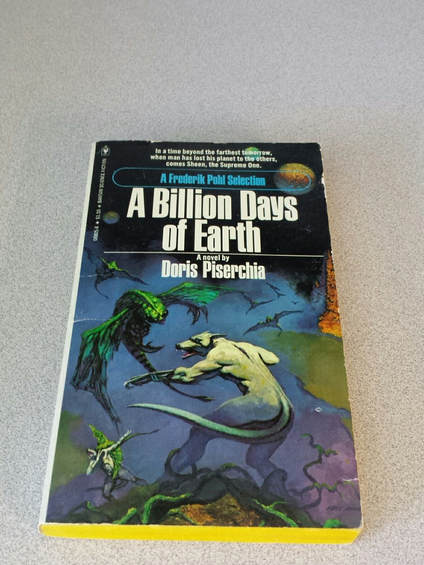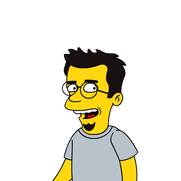Set nearly three million years in the future on a planet Earth that has undergone vast changes, the book follows a fairly large cast of characters from a wide variety of... backgrounds, I guess you'd say. Let me list a little bit of what we know about this world:
Homo sapiens, that is, we humans, have evolved into an eight-foot-tall, super-race that can mentally manipulate matter as easily as breathe. They live in the clouds (literally) above the Earth and are referred to as "the gods".
But there are "humans" still - a race evolved from rats that resemble us almost exactly, save they they retain rat-like paws instead of hands and feet. They wear steel, mechanical hands to make up for the shortcomings (the cover does not accurately depict the "humans" in the book; it's explicitly stated more than once that they look like us save for the hands/feet and that their ears are slightly pointed), but other than that, their society and technology level is basically identical to 1970s Earth.
Most species on Earth seem to have evolved to human or near-human-level intellect, but only the "humans" are considered people. Others are still considered animals. Since they eat farm, raise meat animals, etc, this must be rather strange. You know, being able to converse with your cattle on their way to the slaughterhouse. Very grim, I suppose.
Anyway, the strangest of all is Sheen, who is a one-of-a-kind, seemingly-alien being made of living quicksilver that insists it was born from the Earth itself.
And Sheen is the crux of the plot, really. Sheen subsists on the ego, the sense of self of sentient beings and believes its purpose is to cleanse the Earth of weakness - by making other beings part of itself. It's rather polite about it, though: it asks for permission and if rejected, goes away. For a while, anyway.
There's a lot going on in this novel--mostly world-building and some lesser, mostly-irrelevant subplots--but Sheen's conquering the Earth, and one "man's" stand against it, is the main plot. Again and again, though, Piserchia throws weirdness into the mix--strange creatures and topography mostly--while counterbalancing it with the mundaneness of the culture and these people's everyday lives. What seemed murky, however, was the point of the novel: early on, it seemed to be anti-materialism, but then it seemed as if Sheen was representative of society's tendency towards homogeneity, until it veered off again into a sort of man vs wild kind of deal. This all leads up to an ending that wasn't exactly deus ex machina, but wrapped things up enough for an ending without exactly completing the story. In fact, it left a lot of new questions. I kind of wish Piserchia had written a sequel.
I enjoyed the novel, but I'm glad it was short (only about 60,000 words) as much longer and the weirdness and lack of answers would have started to detract from the pleasure of Piserchia's imagination.
If you're looking for something truly unique, though, definitely check it out for yourself.


 RSS Feed
RSS Feed